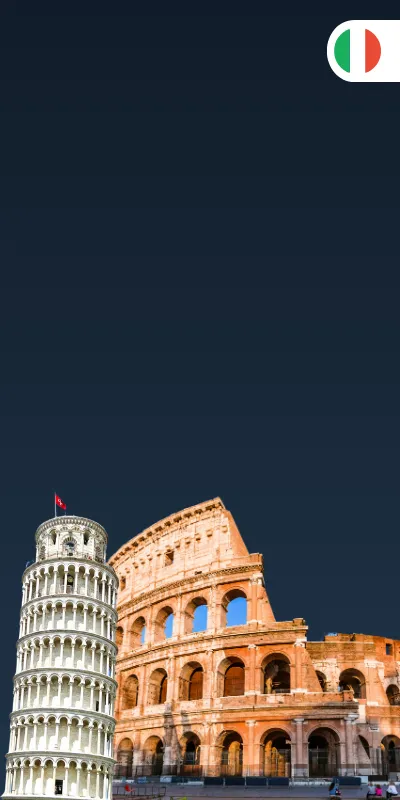

Why Choose Italy for Your Studies?
Affordable Education
Tuition fees at Italian public universities are relatively low, and scholarships are widely available to international students.
Gateway to Europe
Italy’s strategic location offers easy access to other major European cities, ideal for travel, internships, and networking.
Popular Study Fields in Italy
Business & Economics
International Business, Economics, Finance, Luxury Brand Management.
Engineering & Technology
Mechanical Engineering, Renewable Energy, Automation, Robotics.
Medicine & Health Sciences
Medicine, Nursing, Public Health, Biomedical Sciences.
Law & Legal Studies
European Law, Civil Law, International Legal Studies.
Your Application Journey to Italy
Gather Application Materials
Prepare documents like academic transcripts, a motivational letter, CV, recommendation letters, and proof of language proficiency.
Experience Italy’s Rich Student Life
Hear From Our Successful Students
Frequently Asked Questions
No, many Italian universities offer English-taught programs, especially at the master’s level. Learning basic Italian, however, will improve your day-to-day experience and cultural immersion.
Tuition fees at public universities are affordable, generally ranging from €900 to €4,000 per year, depending on the program and your financial background. Living costs vary by city, with Milan and Rome being on the higher end.
Yes, international students can work part-time up to 20 hours per week during their studies and full-time during holidays, provided they hold a valid student visa.
Yes, scholarships are available through the Italian government, universities, and regional authorities. These are often based on merit or financial need, and some are specifically for international students.
Yes, Italy is a generally safe country for students. University cities are student-friendly, healthcare is high-quality, and universities provide support services to help international students settle in securely.
Ready to Start Your Italy Study Journey?
Let our expert counselors guide you every step of the way, from university selection to visa application.
Get Free Consultation